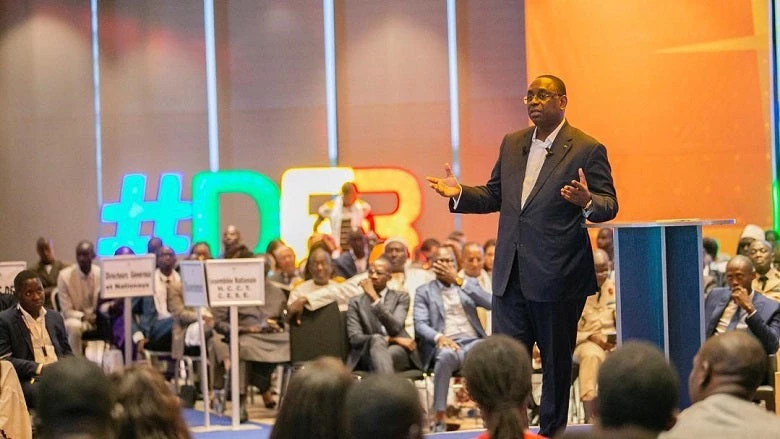
What would happen if you put all the relevant players for the entrepreneurial ecosystem — startup founders, policymakers, developers, students, investors — into one room and facilitated an open dialogue on improving the business environment? This is exactly what is taking place in West Africa through a series of policy hackathons supported by the World Bank.
“We all have a stake in development and this multifaceted process – local, top-down, bottom-up – is a great example of African innovation. Civic engagement in policymaking is not happening elsewhere so it’s not just about importing knowledge and best practice but generating lessons we can export to the rest of the world,” said Sebastian Molineus, World Bank Director of the Finance, Competitiveness and Innovation (FCI) Global Practice about policy hackathons taking place in West Africa, at a recent World Bank Brown-Bag Lunch in January.
So what is a policy hackathon?
Typically, a hackathon is an event where computer programmers and other experts collaborate to develop new software and applications. A policy hackathon works in much the same way. A mix of stakeholders are invited to a facilitated, user-driven policy workshop to harness their collective intelligence and design solutions for identified problems. During these hackathons, policy-users are asked to adopt a policymaker’s perspective to create and propose legislation that can dismantle barriers to innovative entrepreneurship.
Most recently, Senegal’s new Presidential Commission for Rapid Entrepreneurship (DER) initiated an innovation for policy process. The Dakar Policy Hackathon brought together more than sixty actors from Senegal’s entrepreneurial ecosystem to brainstorm ideas on how to improve the business environment, particularly for startups.

“It’s important for political authorities to better understand the difficulties and expectations of entrepreneurs. And of course, it is essential for civil society to have a better idea of where the reforms are and where the entrepreneurial ecosystem is going,” said Abdoul Aziz Sy, CEO of Impact Dakar which hosted the Dakar Policy Hackathon in partnership with Kinaya Ventures, Jokkolabs Dakar, Gainde 2000, Concree and the Women’s Investment Club.
Interactive, participatory and dynamic, the Dakar policy hackathon concluded at 4am with a draft proposal from the entrepreneurial ecosystem for a new Startup Act Senegal. The drafted legislation was refined with the DER, debated by the wider population during an online consultation that leveraged an AI-based chatbot, revised through multi-stakeholder co-creation sessions, reviewed by local legal experts and finally presented to the Senegalese President in a televised public meeting. It must now enter the legislative agenda to be officially adopted within the first half of 2019.
Across Africa, governments are seeking to harness digital technologies and entrepreneurship to transform their societies and job markets. Such an ambitious goal, however, requires engagement with local software developers, accountants, engineers, students, entrepreneurs and other experts. Seeing citizens as a resource and relying on them for local knowledge, rather than a blanket strategy of seeking best practices from elsewhere, therefore allows for homegrown experimentation and gives citizens a stake in public policy.
“It’s time to innovate on economic policy in Africa. We aren’t asking our governments to listen to us, rather we want to work with them to co-create policies that work for the innovation community,” Markos Lemma of IceAddis.
The policy hackathon idea was born in 2016 out of an initiative launched with community innovation hubs across Africa, called i4Policy. More than 128 hubs convening communities of 700,000 entrepreneurs and innovators across the continent have so far co-created and signed the Africa Innovation Policy Manifesto.
The first i4Policy hackathon took place at Impact Hub Kigali in 2017 in partnership with the Rwandan Ministry of Commerce, DfID and the Swiss Government. The local entrepreneurial community worked with the government to draft Rwanda’s national strategy for private sector development and youth employment.
We are now witnessing a real momentum in policy innovation. Many West African governments and beyond are seeking to host their own policy hackathons to foster effective private sector development and youth employment reform. Similar events have taken place in Nigeria, Mali and Côte d’Ivoire. Together with the World Bank (thanks to a trust fund financed by the Italian Agency for Development Cooperation, AICS) and by mobilizing other donors, i4Policy hubs plan to launch policy hackathons in the remaining WAEMU countries in 2019, including in Niger, Burkina Faso, Togo and Benin.
We live at a time when technology is multiplying the opportunities available to populations, even in the most difficult of circumstances. Policy hackathons are a unique way of bringing all players to the table to discuss how governments can leverage technology and entrepreneurial approaches to optimize public policy solutions.



Join the Conversation